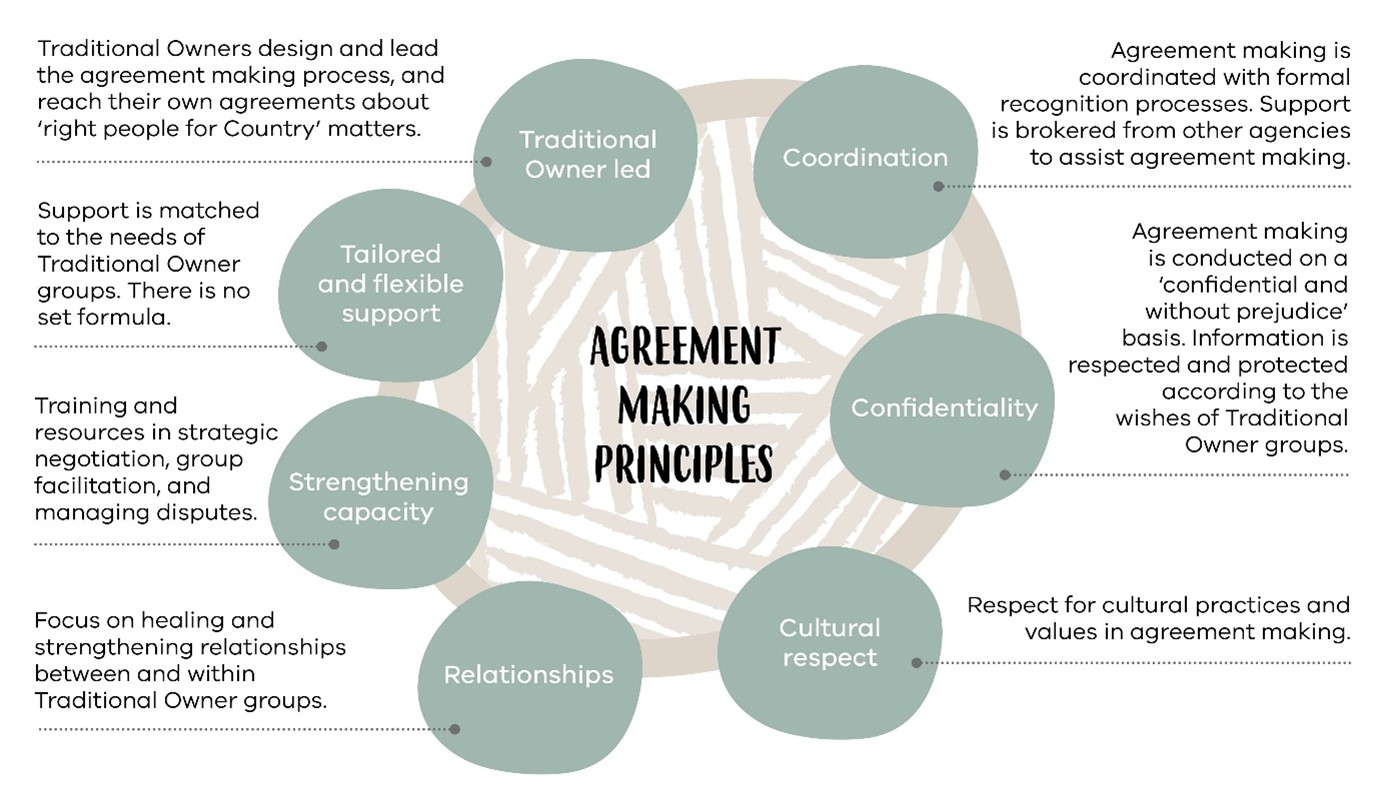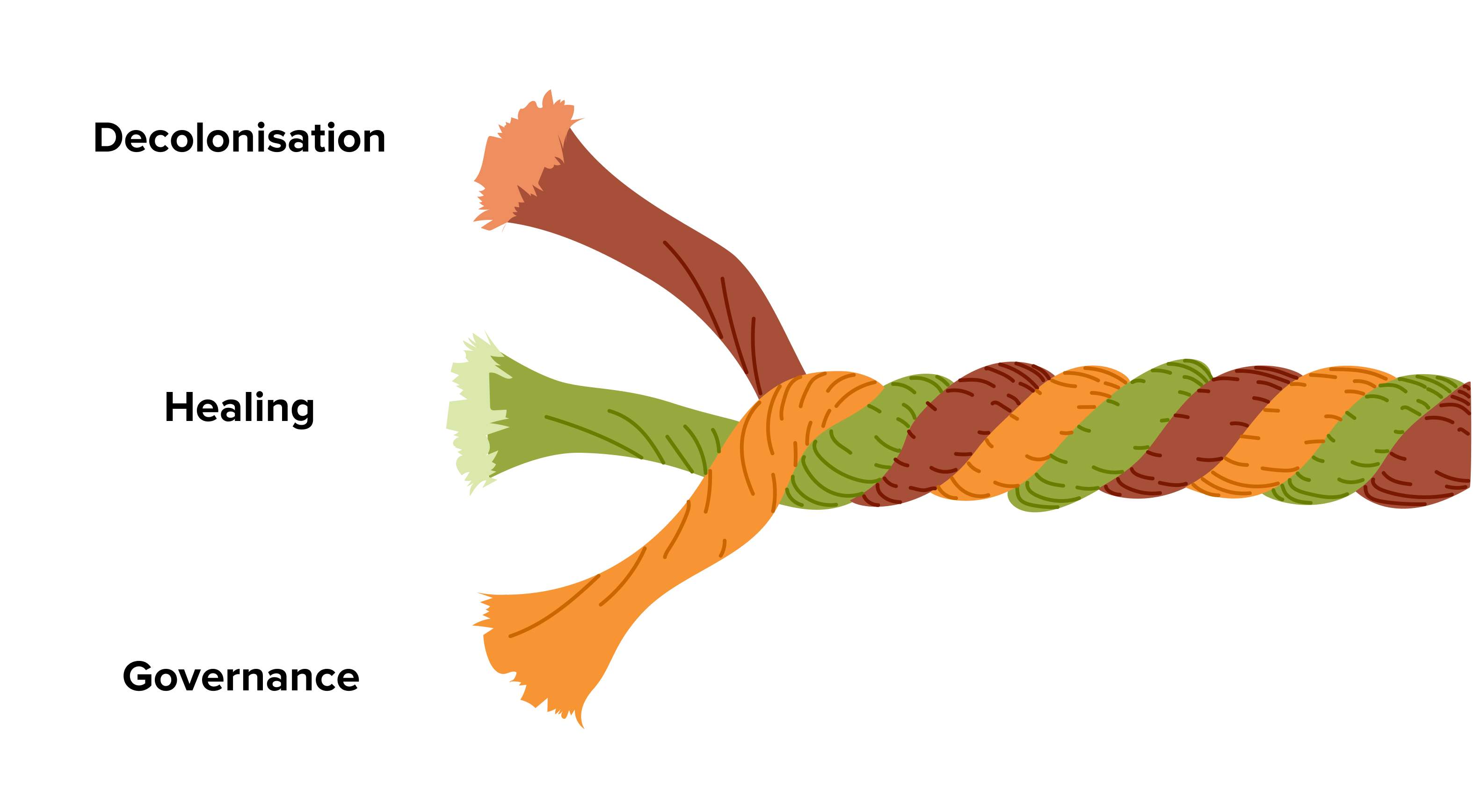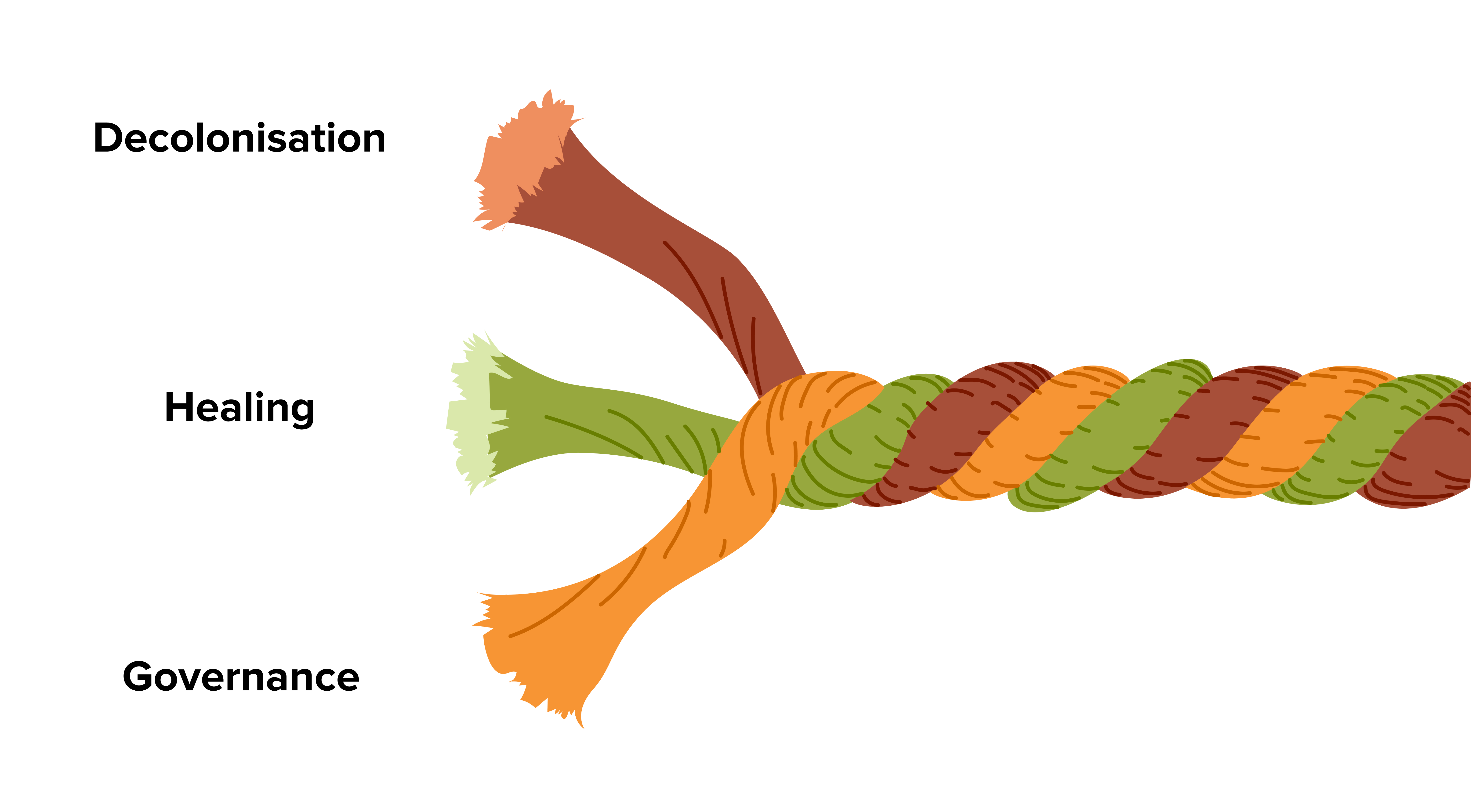Waltja Tjutangku Palyapayi Aboriginal Corporation has clearly documented processes for dealing with complaints, grievances and appeals1Australian Indigenous Governance Institute and Reconciliation Australia, Voice...
Governance is about working together Working together can lead to differences in people’s interests, opinions, and values These differences can lead to conflicts, disputes, and complaints This factsheet offers a...
The Right People for Country program is an Aboriginal and Torres Strait Islander-led project that supports traditional owner groups in dispute resolution and agreement-making It supports groups in making decisions...
“All three processes – decolonisation, healing and governance – are long-term processes to which a person or people must consistently apply their efforts in order to fully achieve Like weaving, this takes ti...
Aboriginal and Torres Strait Islander viewers should be aware that this video may contain images and voices of persons who have passed In this video, Donna Murray, Wiradjuri and Wonnarua woman and CEO of Indigenou...
Healing internal relationships requires Aboriginal and Torres Strait Islander peoples to plan strategically and have the resources to partake in a long-term journey Use the following checklist to think about the p...
The Healing portal is designed to encourage information sharing across sectors It brings together best practice healing initiatives and information about why healing is needed, and what is working in Aboriginal an...
This tool will help you understand why a conflict is happening, consider the different perspectives and people involved, and then develop a peacemaking process to address it Consider each of the questions and use...
When developing your community’s own peacemaking process, there are a number of key aspects to consider Do this activity to develop a peacemaking process for your community or nation Consider each of the key as...


.png)










